
https://ebookmass.com/product/philosophy-of-computer-
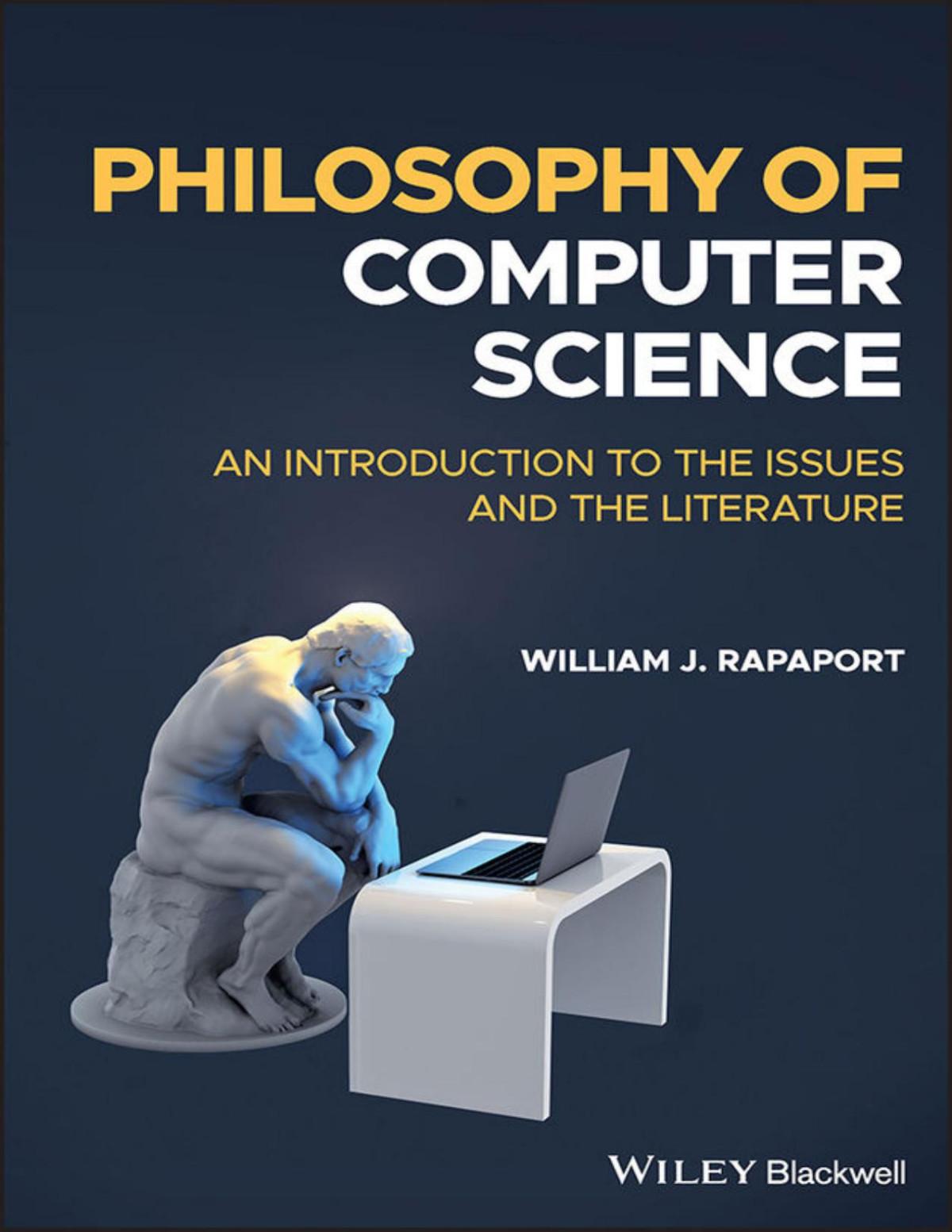
Instant digital products (PDF, ePub, MOBI) ready for you
Download now and discover formats that fit your needs...
An Introduction to the Criminology of Genocide William R. Pruitt
https://ebookmass.com/product/an-introduction-to-the-criminology-ofgenocide-william-r-pruitt/
ebookmass.com
An Introduction to the Philosophy of Religion 4th Edition Brian Davies
https://ebookmass.com/product/an-introduction-to-the-philosophy-ofreligion-4th-edition-brian-davies/
ebookmass.com
An Introduction to Political Philosophy Jonathan Wolff
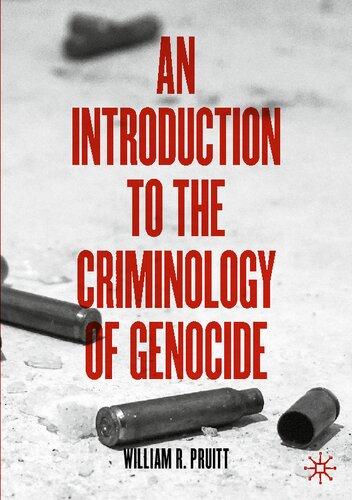
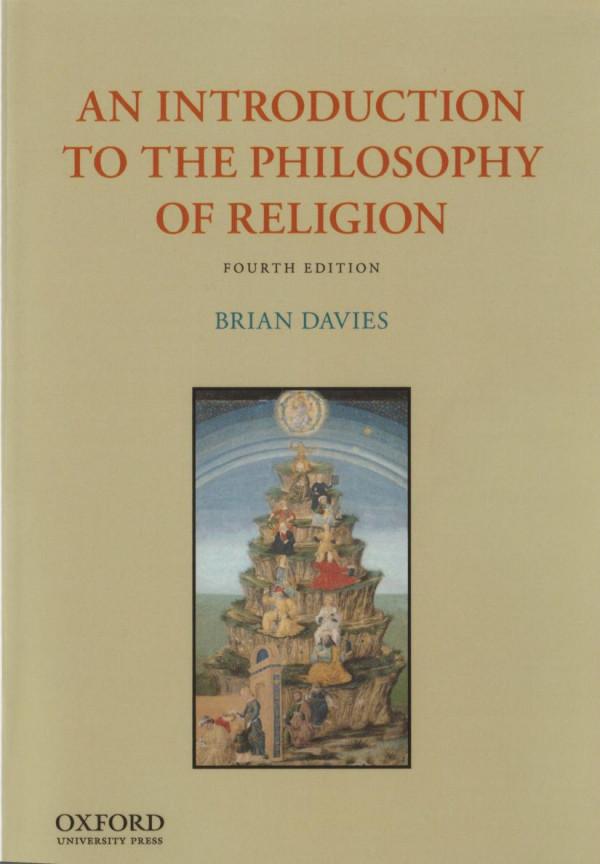
https://ebookmass.com/product/an-introduction-to-political-philosophyjonathan-wolff/
ebookmass.com
Dialogue on the Two Greatest World Systems Galileo

https://ebookmass.com/product/dialogue-on-the-two-greatest-worldsystems-galileo/
ebookmass.com
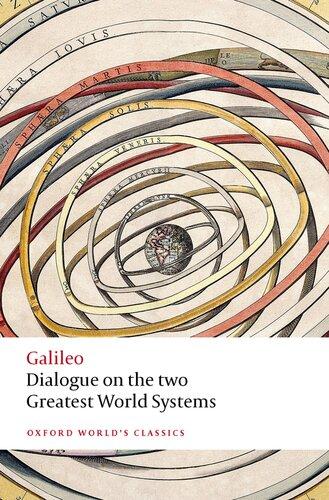
The People Are King: The Making of an Indigenous Andean
Politics S. Elizabeth Penry
https://ebookmass.com/product/the-people-are-king-the-making-of-anindigenous-andean-politics-s-elizabeth-penry/
ebookmass.com
Leibniz on Time, Space, and Relativity Richard T. W. Arthur
https://ebookmass.com/product/leibniz-on-time-space-and-relativityrichard-t-w-arthur/
ebookmass.com
The Cheerful Granny ~ Chidren Story Book 2nd Edition I Made Rico Surya Wirawan
https://ebookmass.com/product/the-cheerful-granny-chidren-storybook-2nd-edition-i-made-rico-surya-wirawan/
ebookmass.com
(eBook PDF) Ethics, Left and Right: The Moral Issues That Divide Us
https://ebookmass.com/product/ebook-pdf-ethics-left-and-right-themoral-issues-that-divide-us/
ebookmass.com
Fundamentals of Critical Care-A Textbook for Nursing and Healthcare Students (Oct 10, 2022)_(1119783259)_(WileyBlackwell) 1st Edition Ian Peate
https://ebookmass.com/product/fundamentals-of-critical-care-atextbook-for-nursing-and-healthcare-studentsoct-10-2022_1119783259_wiley-blackwell-1st-edition-ian-peate/ ebookmass.com
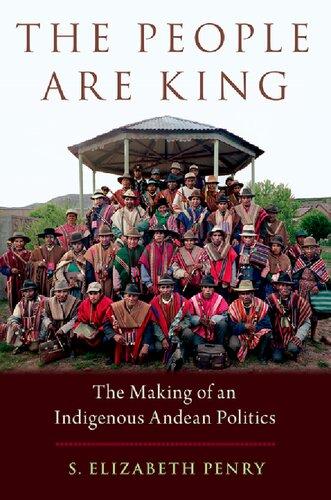
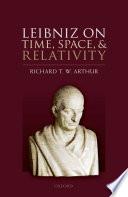
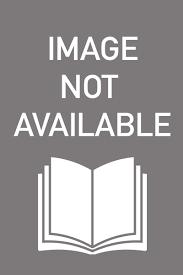
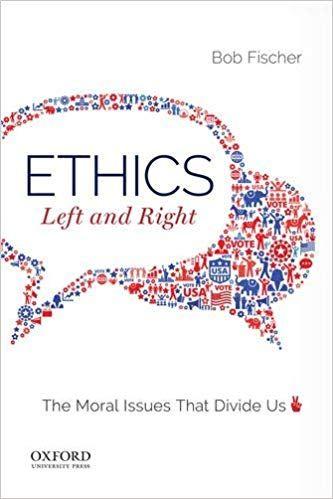
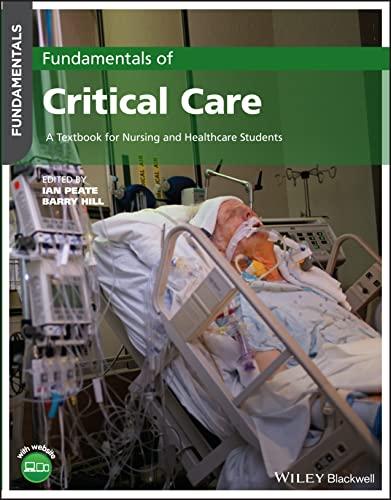
Arias' Practical Guide to High-Risk Pregnancy and Delivery
5th Edition Glennis Zilm
https://ebookmass.com/product/arias-practical-guide-to-high-riskpregnancy-and-delivery-5th-edition-glennis-zilm/
ebookmass.com
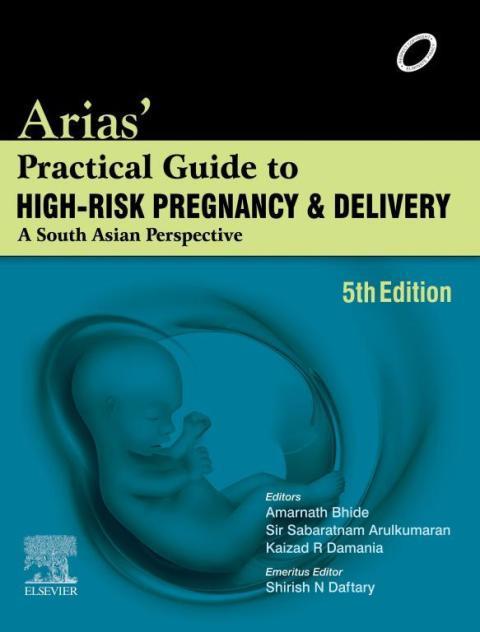
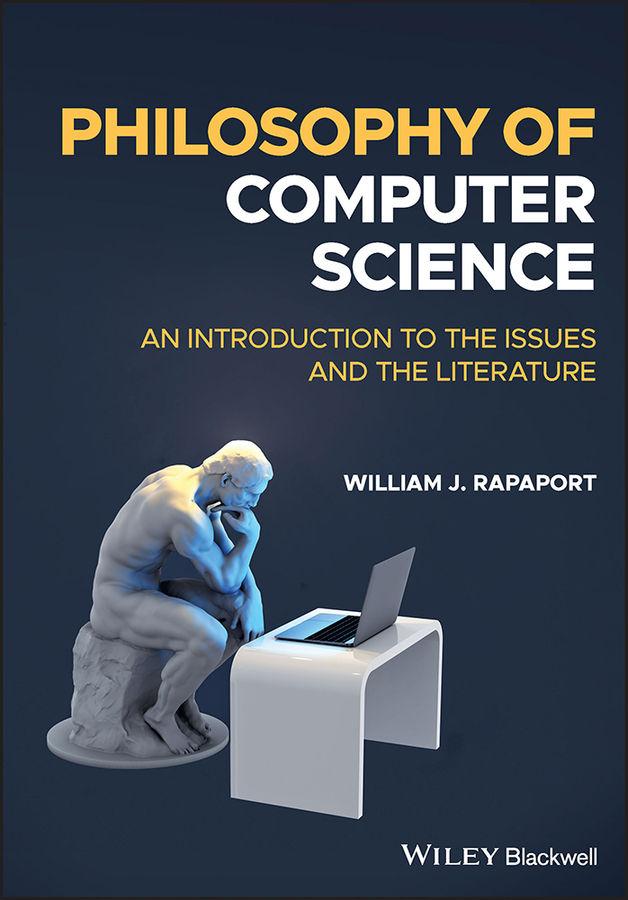
Table of Contents
Cover
Title Page
Copyright
Dedication
List of Figures
Preface
Acknowledgments
About the Companion Website
Part I: Philosophy and Computer Science
1 An Introduction to the Philosophy of Computer Science
1.1 What This Book Is About
1.2 What This Book Is Not About
2 Philosophy: A Personal View
2.1 Introduction
2.2 A Definition of ‘Philosophy’
2.3 What Is Truth?
2.4 Searching for the Truth
2.5 What Is “Rational”?
2.6 Philosophy as a Personal Search
2.7 Philosophies of Anything and Everything
2.8 Philosophy and Computer Science
2.9 Appendix: Argument Analysis and Evaluation Notes
Part II: Computer Science, Computers, and Computation
3 What Is Computer Science?
3.1 Introduction
3.2 Naming the Discipline
3.3 Why Ask What CS Is?
3.4 What Does It Mean to Ask What Something Is?
3.5 CS as the Science of Computers
3.6 CS Studies Algorithms
3.7 Physical Computers vs. Abstract Algorithms
3.8 CS Studies Information
3.9 CS as a Mathematical Science
3.10 CS as a Natural Science of Procedures
3.11 CS as an Empirical Study
3.12 CS as Engineering
3.13 Science xor Engineering?
3.14 CS as “Both”
3.15 CS as “More”
3.16 CS as “Neither”
3.17 Summary
3.18 Questions for the Reader Notes
4 Science 4.1 Introduction
4.2 Science and Non‐Science
4.3 Science as Systematic Study
4.4 The Goals of Science
4.5 Instrumentalism vs. Realism
4.6 Scientific Theories
4.7 “The” Scientific Method
4.8 Falsifiability
4.9 scientific revolutions
4.10 Other Alternatives
4.11 CS and Science
4.12 Questions to Think About Notes
5 Engineering
5.1 Defining ‘Engineering’
5.2 Engineering as Science
5.3 A Brief History of Engineering
5.4 Conceptions of Engineering
5.5 What Engineers Do
5.6 The Engineering Method
5.7 Software Engineering
5.8 CS and Engineering
5.9 Questions to Think About Notes
6 Computers: A Brief History
6.1 Introduction
6.2 Would You Like to Be a Computer?
6.3 Two Histories of Computers
6.4 The Engineering History
6.5 The Scientific History
6.6 The Histories Converge
6.7 What Is a Computer? Notes
7 Algorithms and Computability
7.1 Introduction
7.2 Functions and Computation
7.3 ‘Algorithm’ Made Precise8
7.4 Five Great Insights of CS
7.5 Structured Programming31
7.6 Recursive Functions
7.7 Non‐Computable Functions
7.8 Summary
7.9 Questions for the Reader Notes
8 Turing's Analysis of Computation
8.1 Introduction
8.2 Slow and Active Reading
8.3 Title: “The Entscheidungsproblem”
8.4 Paragraph 1
8.5 Paragraph 2
8.6 Section 1, Paragraph 1: “Computing Machines”
8.7 Section 9: “The Extent of the Computable Numbers”
8.8 “Computing Machines”
8.9 Section 2: “Definitions”
8.10 Section 3: “Examples of Computing Machines”
8.11 Section 4: “Abbreviated Tables”
8.12 Section 5: “Enumeration of Computable Sequences”
8.13 Section 6: “The Universal Computing Machine”
8.14 The Rest of Turing's Paper Notes
9 Computers: A Philosophical Perspective
9.1 What Is a Computer?
9.2 Informal Definitions
9.3 Computers, Turing Machines, and Universal Turing Machines
9.4 John Searle's “Pancomputationalism”: Everything Is a Computer
9.5 Patrick Hayes: Computers as Magic Paper
9.6 Gualtiero Piccinini: Computers as Digital String Manipulators
9.7 What Else Might Be a Computer?
9.8 Conclusion
9.9 Questions for the Reader Notes
Part III: The Church‐Turing Computability Thesis
10 Procedures
10.1 Introduction
10.2 The Church‐Turing Computability Thesis
10.3 What Is a Procedure?
10.4 Carol Cleland: Some Effective Procedures Are Not Turing Machines
10.5 Beth Preston: Recipes, Algorithms, and Specifications
10.6 Summary
10.7 Questions for the Reader Notes
11 Hypercomputation
11.1 Introduction
11.2 Generic Computation
11.3 Non‐Euclidean Geometries and “Non‐Turing Computations”
11.4 Hypercomputation
11.5 “Newer Physics” Hypercomputers
11.6 Analog Recurrent Neural Networks
11.7 Objections to Hypercomputation
11.8 Interactive Computation
11.9 Oracle Computation
11.10 Trial‐and‐Error Computation
11.11 Summary
11.12 Questions for the Reader Notes
Part IV: Computer Programs
12 Software and Hardware
12.1 The Nature of Computer Programs
12.2 Programs and Algorithms
12.3 Software, Programs, and Hardware
12.4 Moor: Software Is Changeable
12.5 Suber: Software Is Pattern
12.6 Colburn: Software Is a Concrete Abstraction
12.7 Summary
12.8 Questions for the Reader Notes
13 Implementation
13.1 Introduction
13.2 Implementation as Semantic Interpretation
13.3 Chalmers's Theory of Implementation Notes
14 Computer Programs as Scientific Theories
14.1 Introduction
14.2 Simulations
14.3 Computer Programs Are Theories
14.4 Computer Programs Aren't Theories Notes
15 Computer Programs as Mathematical Objects
15.1 Introduction
15.2 Theorem Verification
15.3 Program Verification
15.4 The Fetzer Controversy
15.5 The Program‐Verification Debate: Summary
15.6 Program Verification, Models, and the World Notes
16 Programs and the World
16.1 Introduction
16.2 Internal vs. External Behavior: Some Examples
16.3 Two Views of Computation
16.4 Inputs, Turing Machines, and Outputs
16.5 Are Programs Teleological?
16.6 Algorithms Do Need a Purpose
16.7 Algorithms Don't Need a Purpose
16.8 Algorithms and Goals
16.9 Computing with Symbols or with Their Meanings
16.10 Syntactic, Internal, and Indigenous Semantics
16.11 Content and Computation
16.12 Summary
16.13 Questions for the Reader Notes
Part V: Computer Ethics and Artificial Intelligence
17 Computer Ethics I: Should We Trust Computers?
17.1 Introduction
17.2 Decisions and Computers
17.3 Are Computer Decisions Rational?
17.4 Should Computers Make Decisions for Us?
17.5 Should Computers Make Decisions with Us?
17.6 Should We Trust Decisions Computers Make?
17.7 Are There Decisions Computers Must Make for Us?
17.8 Are There Decisions Computers Shouldn't Make?
17.9 Questions for the Reader Notes
18 Philosophy of Artificial Intelligence
18.1 Introduction
18.2 What Is AI?
18.3 The Turing Test
18.4 Digression: The “Lovelace Objection”
18.5 Digression: Turing on Intelligent Machinery
18.6 The Chinese Room Argument
18.7 The Argument from Biology
18.8 The Argument from Semantics
18.9 Leibniz's Mill and Turing's “Strange Inversion”
18.10 A Better Way
18.11 Questions for Discussion
Notes
19 Computer Ethics II: Should We Build Artificial Intelligences?
19.1 Introduction
19.2 Is AI Possible in Principle?
19.3 What Is a Person?
19.4 Rights
19.5 Responsibilities
19.6 Personal AIs and Morality
19.7 Are We Personal AIs?
19.8 Questions for the Reader
Notes
Part VI: Closing Remarks
20 Computer Science: A Personal View
20.1 Introduction
20.2 Computer Science and Elephants
20.3 Five Central Questions of CS
20.4 Wing's Five Questions
20.5 Conclusion
Notes
Bibliography
Index
End User License Agreement




